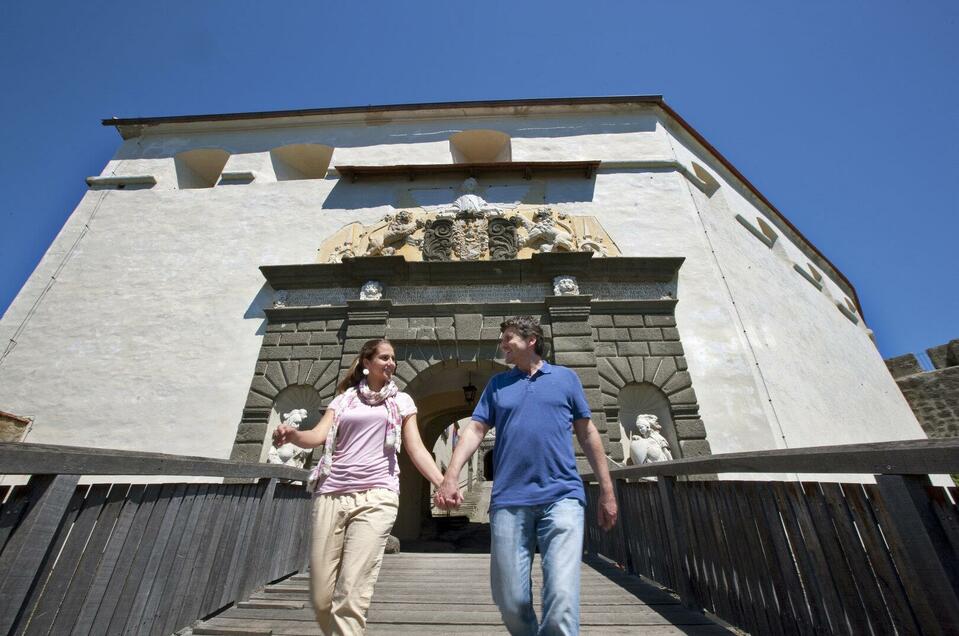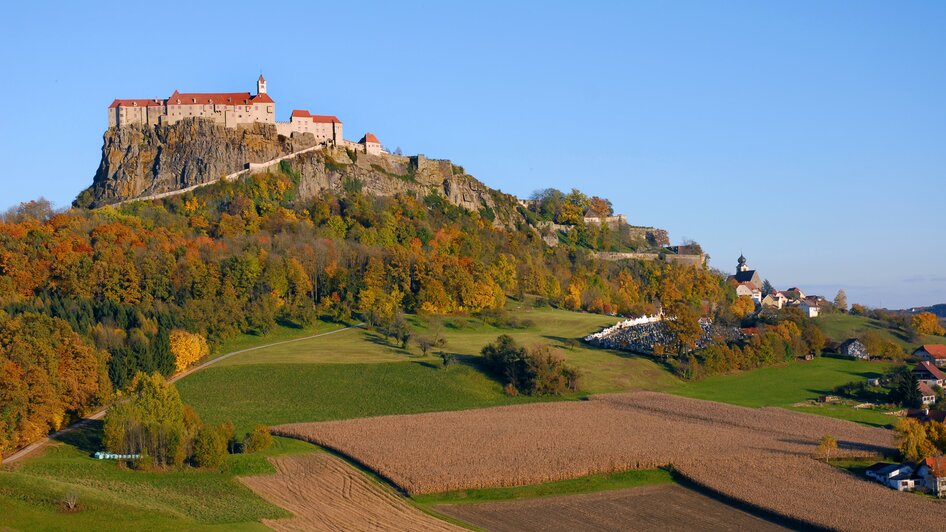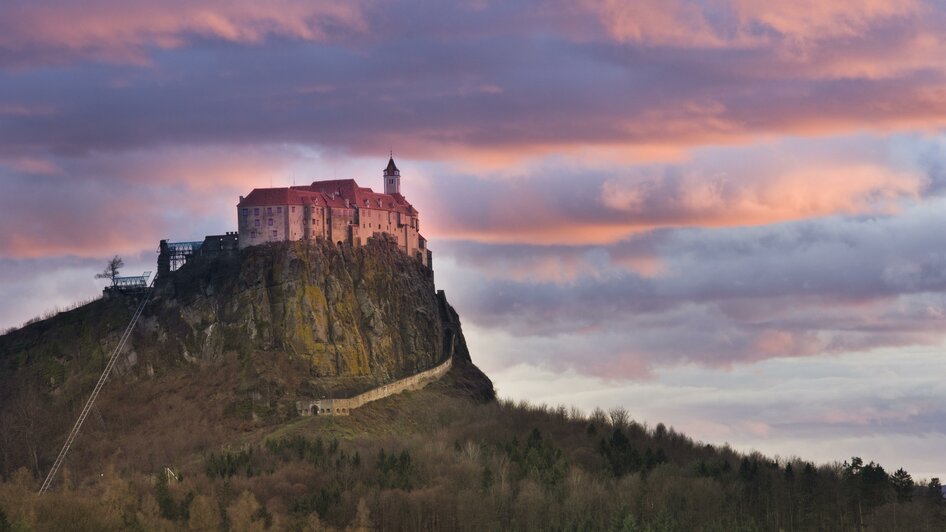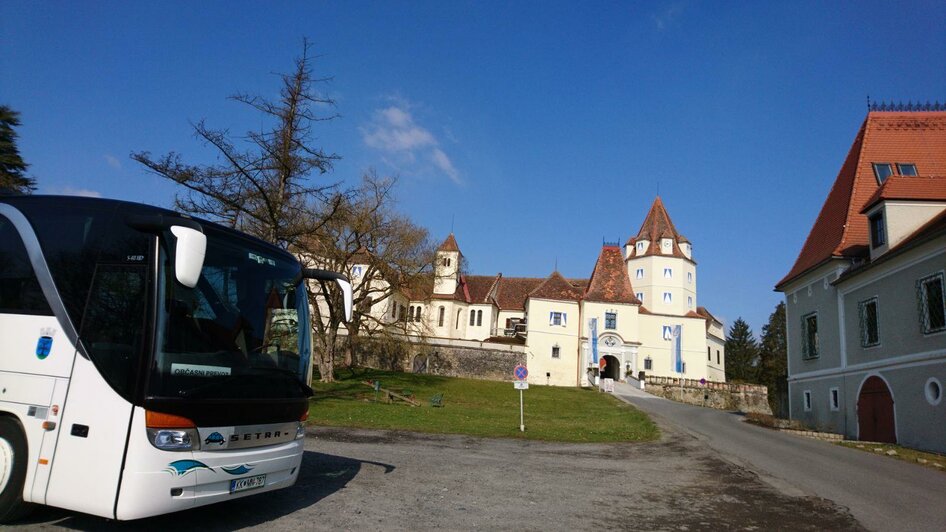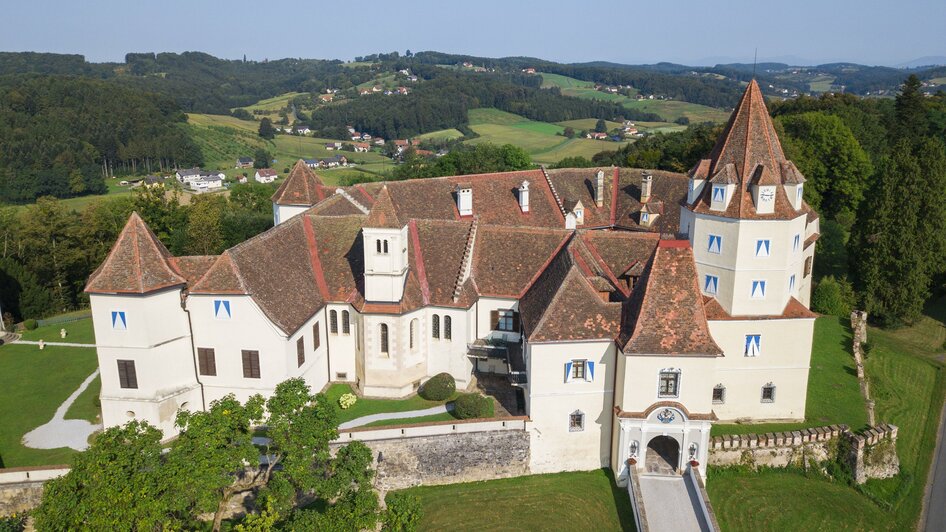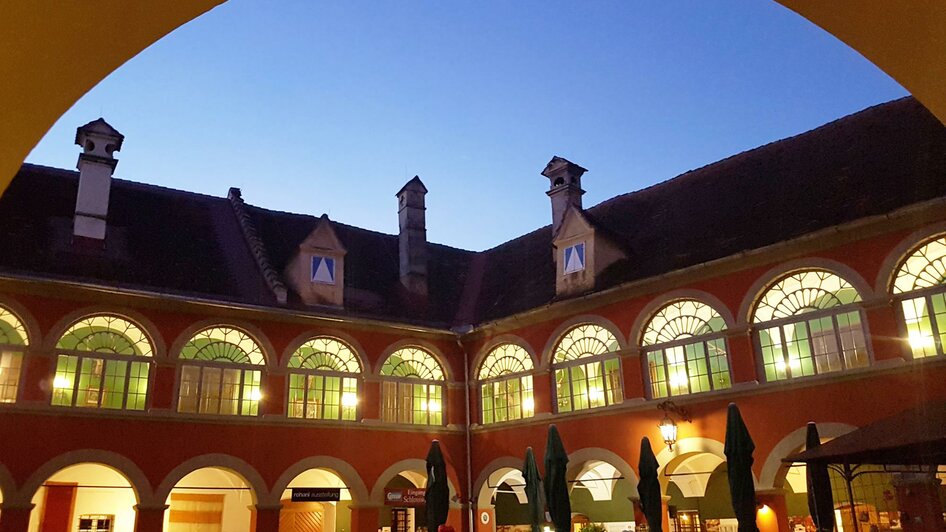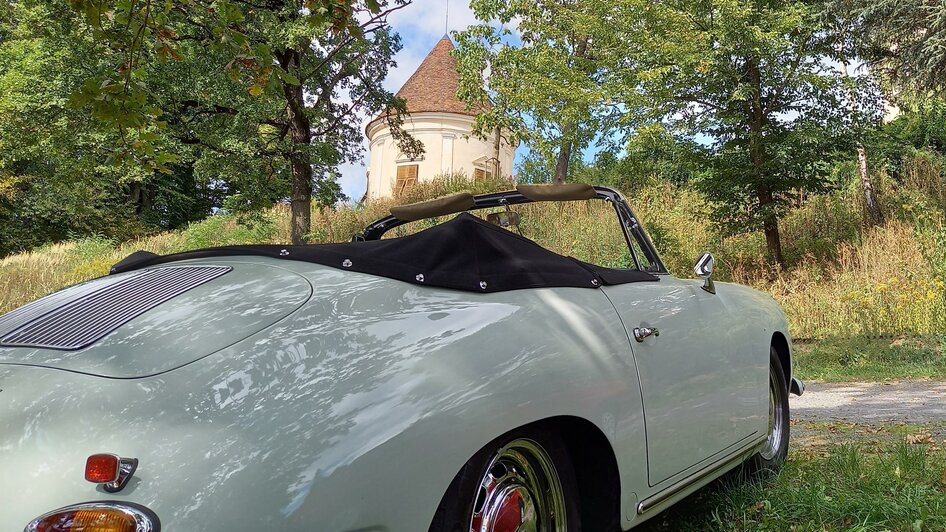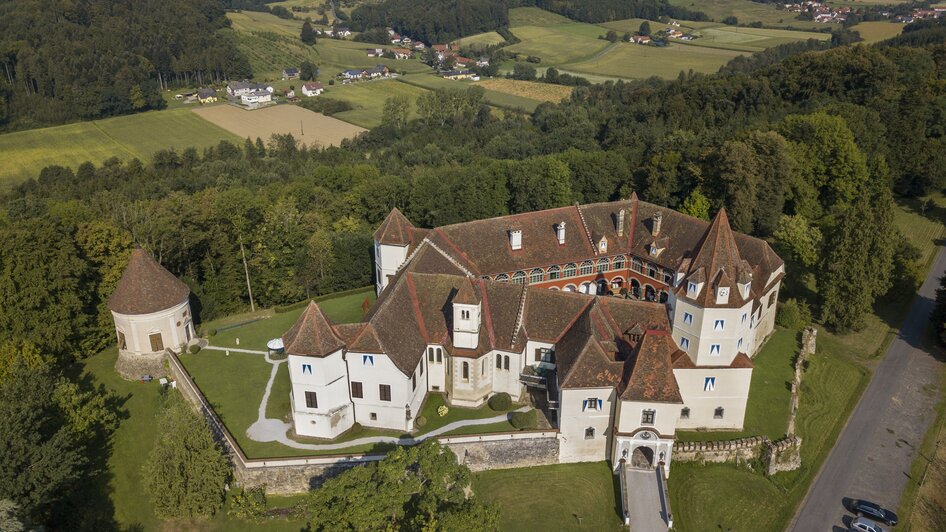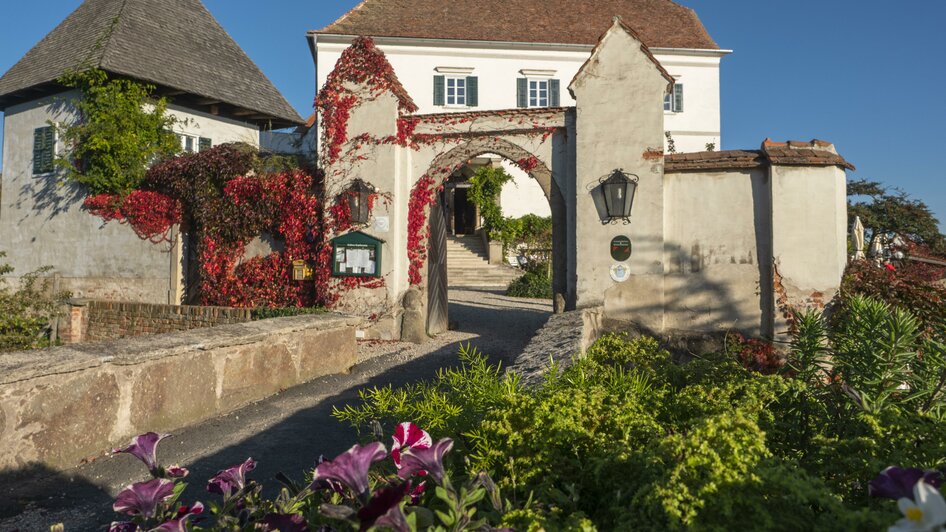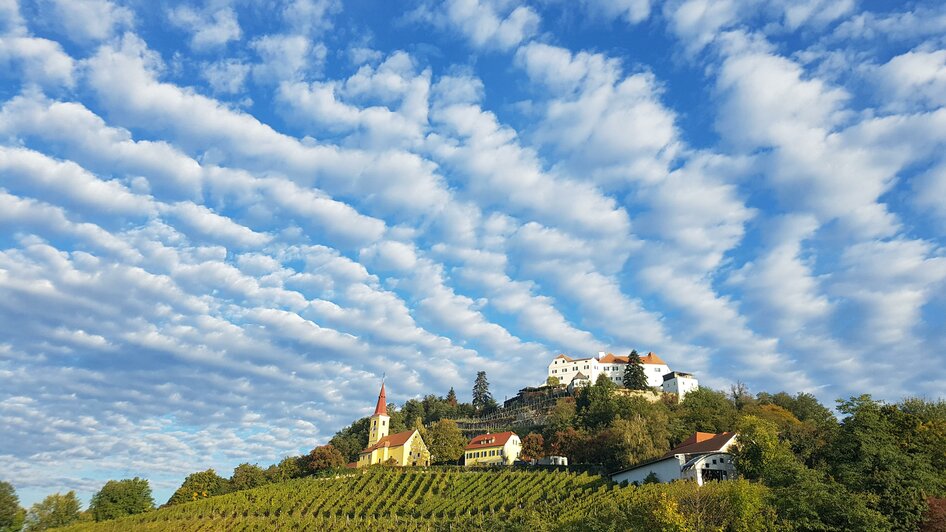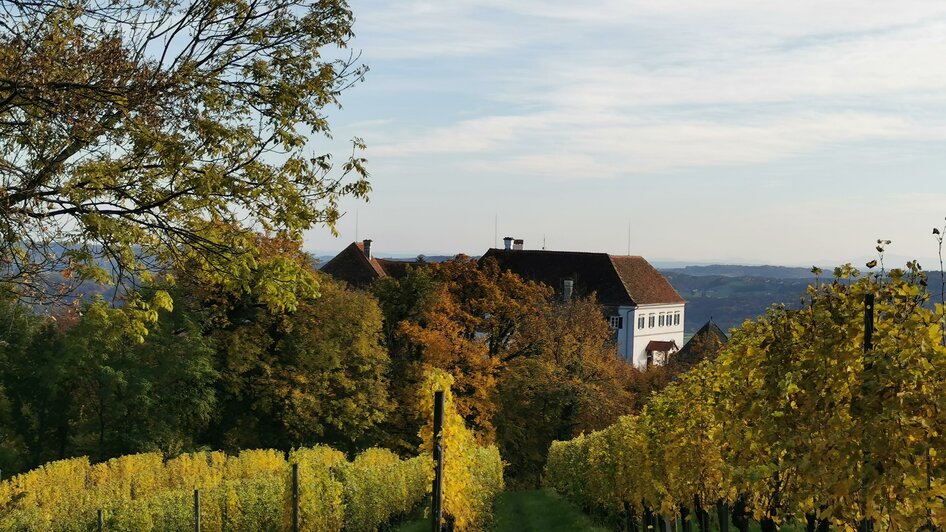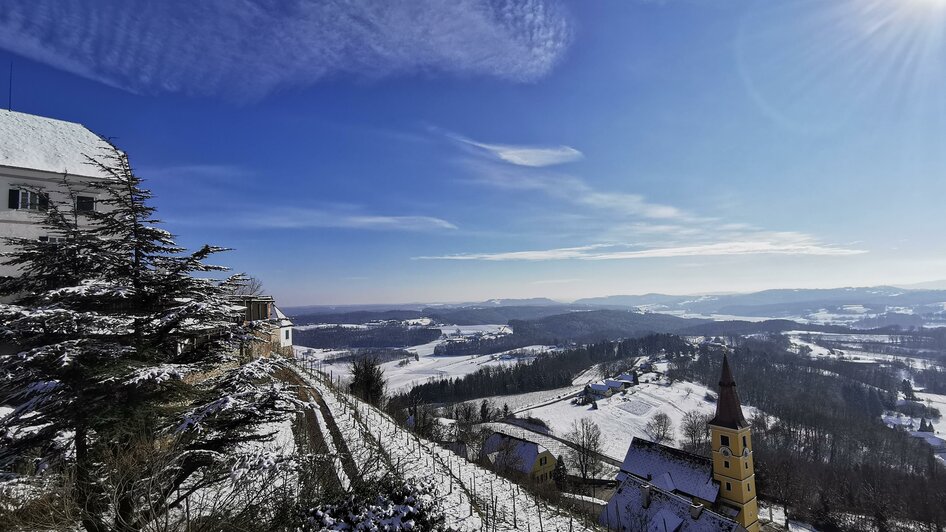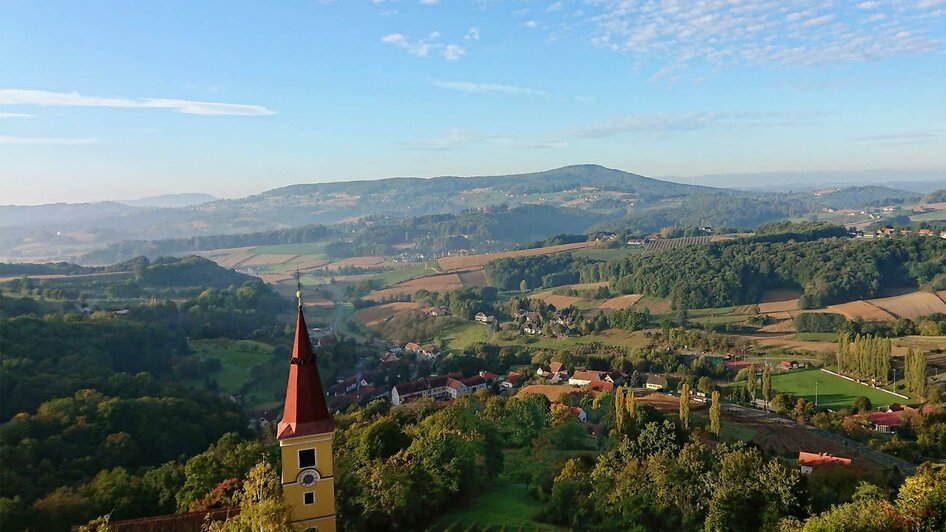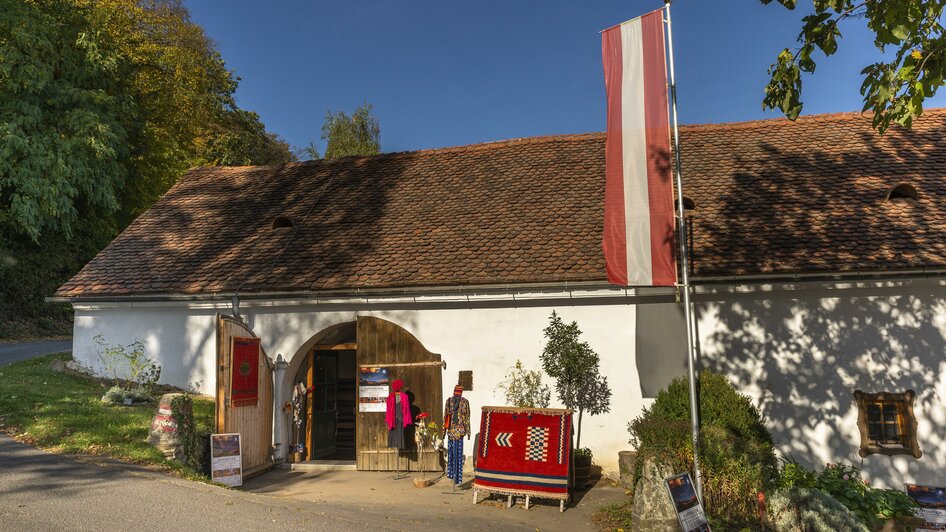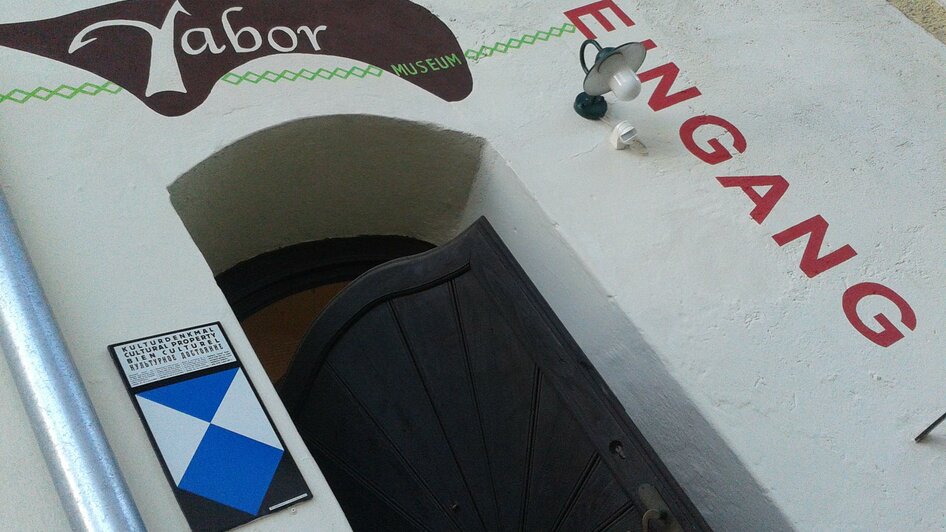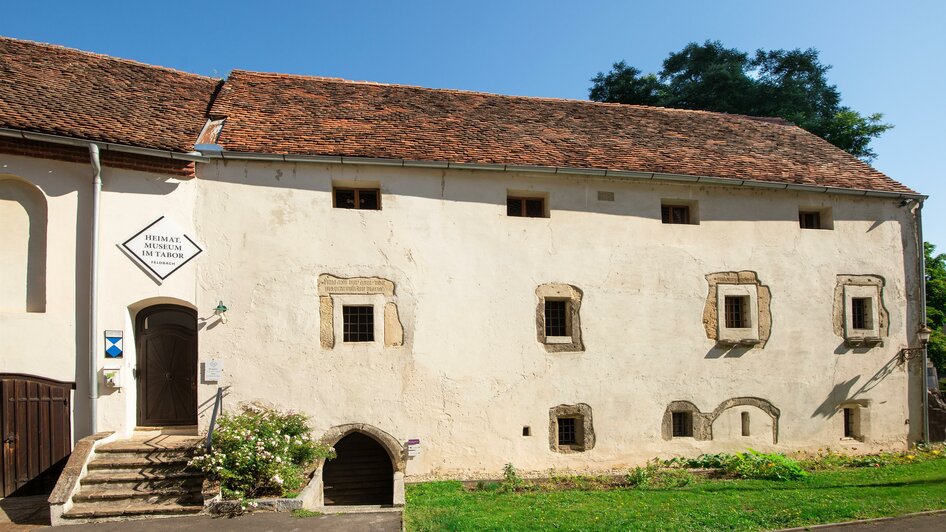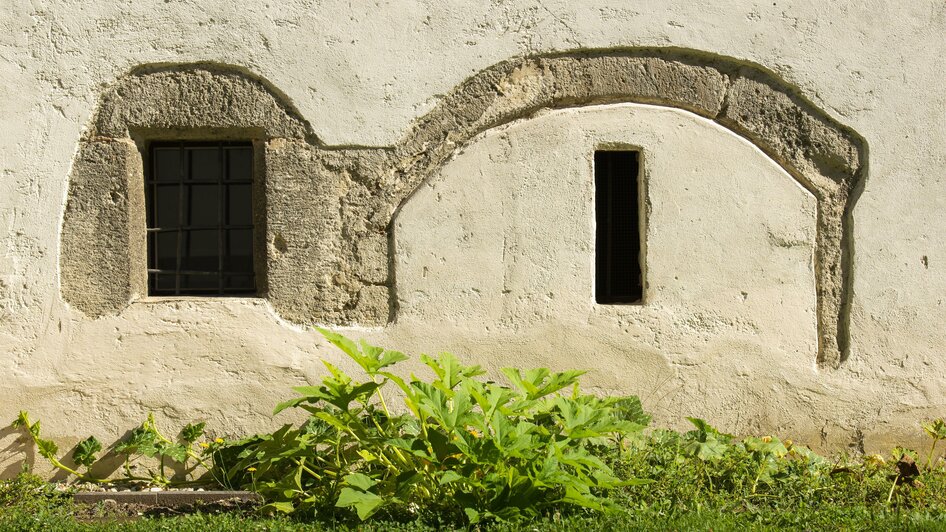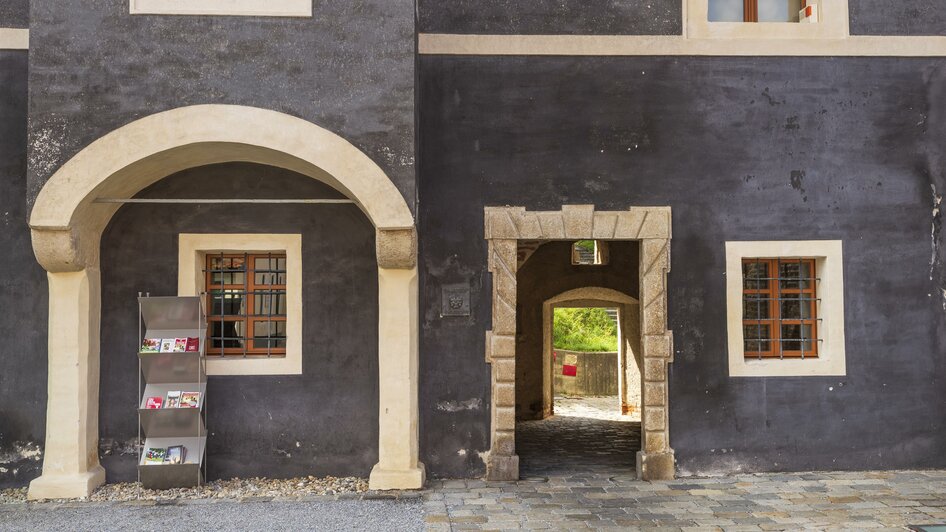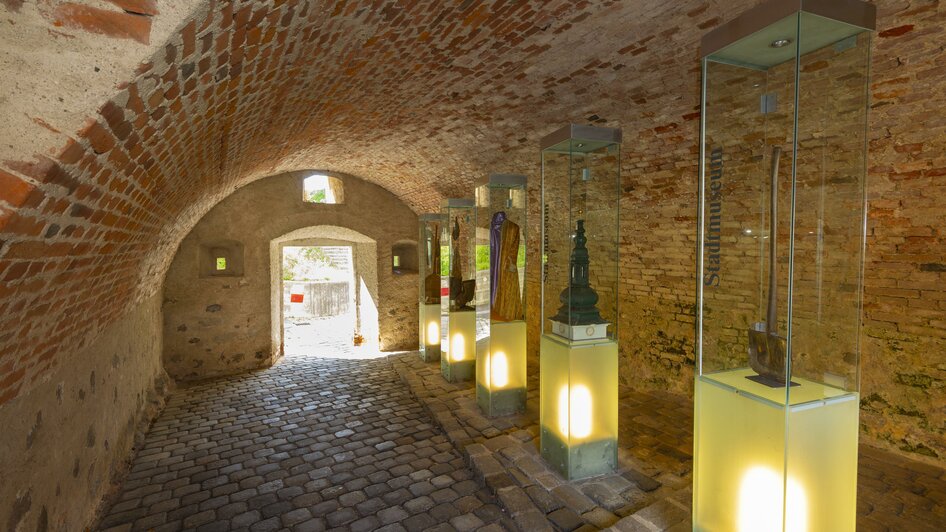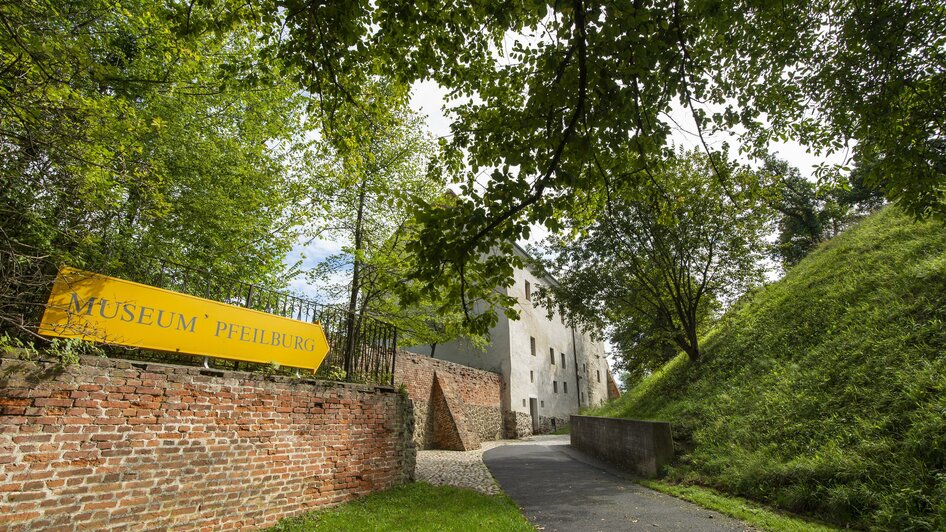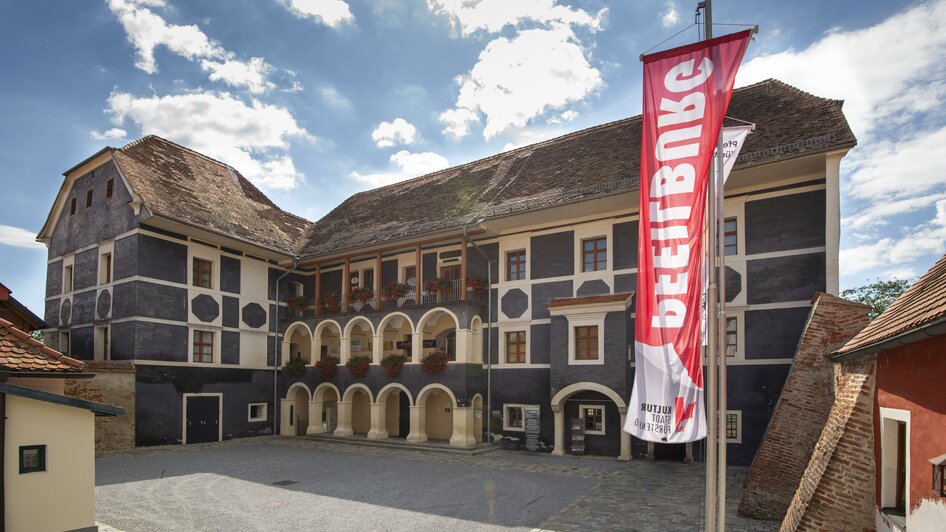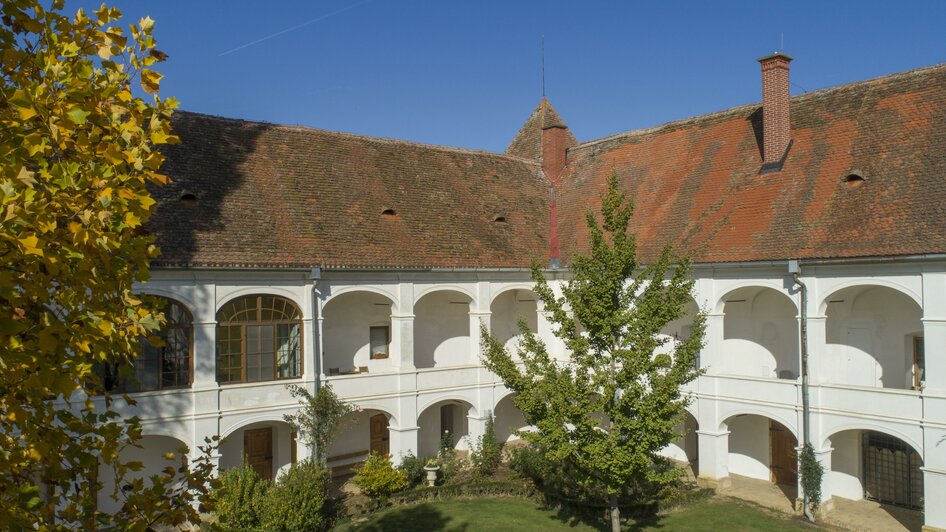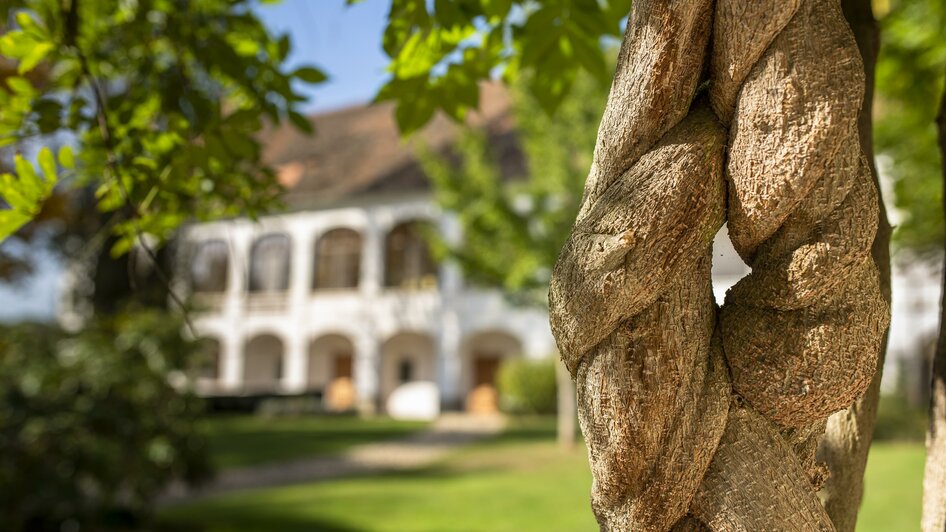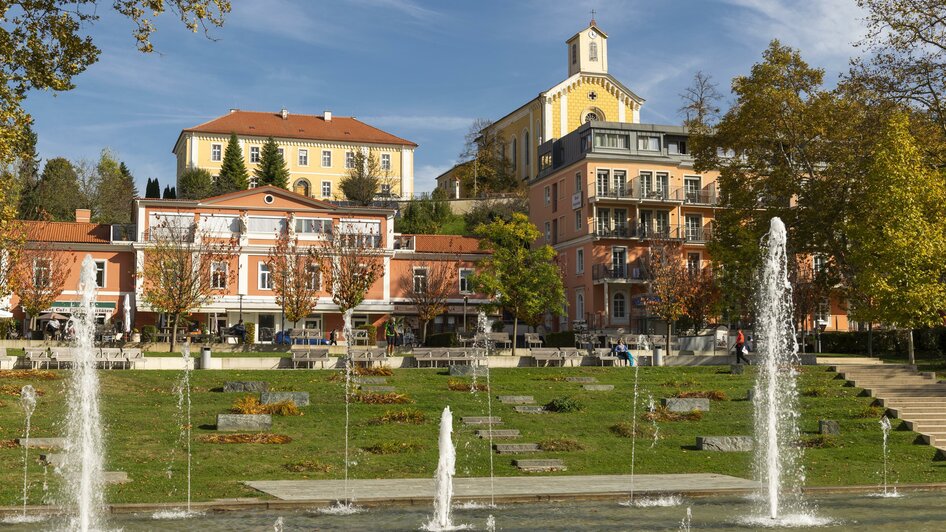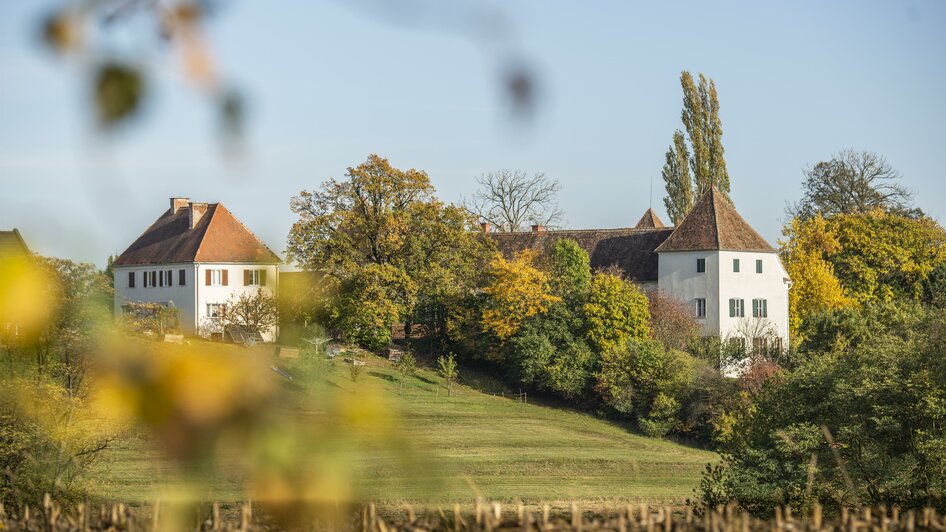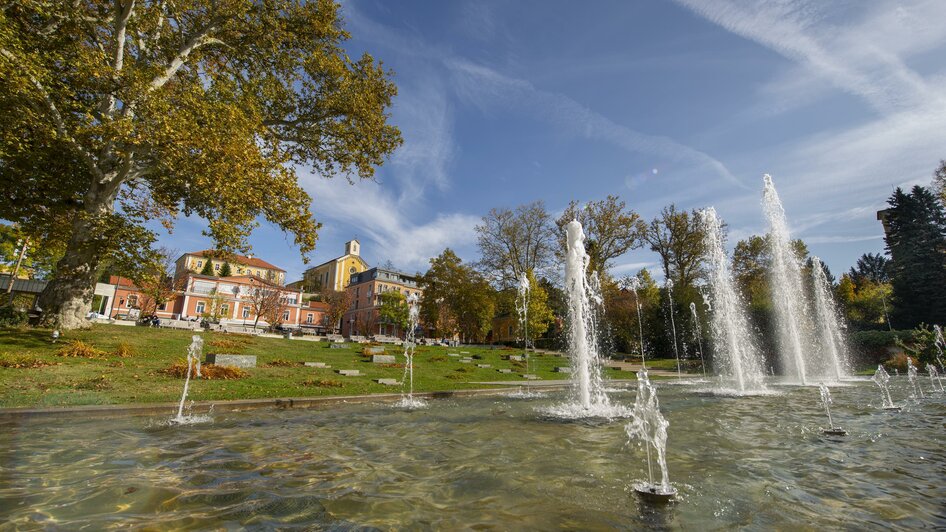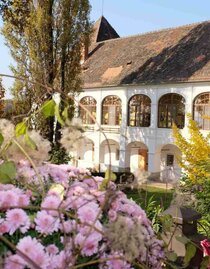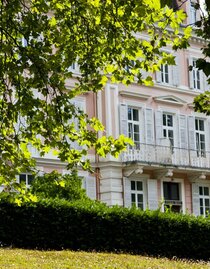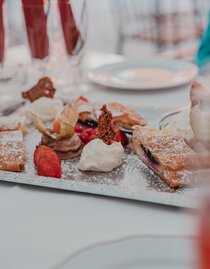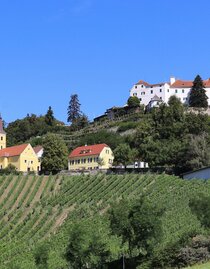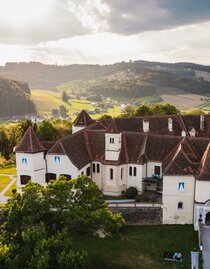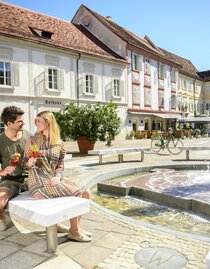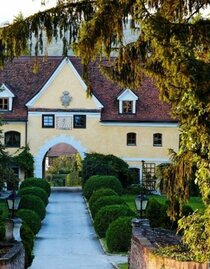Die Schlösserstraße
KapfensteinDue to its evolved historical development, southeastern Austria is one of the regions richest in castles and palaces. Built to protect the land and to secure the traffic routes, the Styrian and southern Burgenland castles were developed in their fortification until the 17th century.
In southeastern Austria, numerous castles and palaces invite you to the region of cultures and spas. The Castle Road connects castles and palaces, which are living witnesses of great epochs. Along this "court fence of the empire" the Germanic, Romanic and Slavic cultures collided and formed a chain of castles and palaces as a "bulwark and bridge to the East" - the Castle Road. Styria as well as southern Burgenland were for centuries the venue of warring peoples and cultures. In recent decades, the castles and palaces have been given a new purpose - many of them now serve as hotels, excursion destinations, museums, wedding and seminar locations or spoil you with culinary delights.
A journey along the court fence of the empire
Immerse yourself in another world and time and feel the life and lifestyle that has grown for centuries. The places in the thermal and volcanic land of Styria along the castles and palaces offer relaxation and variety for mind and body. The Castles Route takes you to the castles and palaces of southeastern Austria around the provincial capital of Graz. Most of them are located in Styria, some also in Burgenland and Slovenia. The offer of the houses is very diverse. Some host exhibitions and have impressive gardens, others are known as a former monastery or church or accommodate you in the spacious rooms and suites and shine with special culinary offers.
Tip: In some of the castles and palaces you can also organize weddings or company celebrations. You can combine the latter with a seminar in the same location. Modern seminar and conference rooms are available. Especially for children, castles and palaces exert an almost magical attraction. That's why some locations on the Castle Road also offer special guided tours for families with children - experience art, culture and history up close, even for the little ones.
Castle Hotels - Noble Hostels
Have you always wanted to spend the night in a medieval castle? Or would you rather feel like a nobleman in a luxurious castle? At Kapfenstein Castle, Obermayerhofen Castle and Welsdorf Castle you can not only get married or celebrate, but also spend your vacation. Enjoy peace and romance in the lovingly renovated historic rooms. Experience art and culture for the whole family. Numerous offers for a stay in a castle hotel in Austria await you.
By the way: What is the value of history? What is tradition? Structurally maintained old substance with grown guest culture? We are convinced that the charm of things often lies in the contrasts. Visit the personalities behind the historic walls and don't be surprised by the youthful spirit that you will encounter everywhere. Consul Andreas Bardeau, for example, is probably the only lord of Kornberg Castle who personally guides guests through the opulently furnished salons of his castle and has many a bon mot from the far-reaching family history of the Bardeaus - a family that has owned Kornberg Castle since 1871 and was elevated to the rank of Austrian count by Emperor Franz Joseph in 1911. In addition, he takes guests on a tour of his private rooms and tells them about the challenges he faces in view of the castle's use.
Temporary lord of the castle
Knights' castles, castle ruins, manor houses and fairytale castles. The stuff of true vacation dreams. Numerous impressive buildings line up in the thermal and volcanic region of Styria, for families, yes-men, art lovers and nature lovers. Romantic, mysterious, historic, adventurous: castles and palaces have always had a magical attraction. We pass walls and gates that were built hundreds of years ago. We walk through magnificent gardens, dine in spacious vaulted halls, slumber contentedly in stylish chambers and feel like prince and princess, knight and damsel, lord and lady of the castle. This doesn't have to be a dream: many a castle is happy to accommodate paying guests these days. The fascinating thing about it: with every visit, you become part of a unique story. The impressive buildings of the Styrian-Burgenland Castle Road take their visitors on an exciting journey through time: Obermayerhofen Castle, Kornberg Castle, Riegersburg Castle and Kapfenstein Castle, for example. "There has always been a high density of castles here," Andreas Bardeau tells us. "This former border situation has become a popular tourist attraction." Many of these houses have been saved from decay - thank goodness, otherwise we would only be able to experience the eventful history of the borderland today through numerous ruins. Thanks are due above all to the owners, who have made it their business to make their cultural assets accessible to future generations. As the owner of Kornberg Castle with its beautiful Renaissance courtyard, the lawyer and agricultural investor Bardeau has created a well-known exhibition center (Oriental Carpets, Christmas, Easter, The Small World of Great Castles, ...). Moreover, Kornberg Castle is considered an exceptional wedding castle. Every year, around 60 couples swear eternal fidelity to each other here. Andreas Bardeau: "Everyone wants to feel like in a fairy tale for once in their life. Especially at the wedding." More than entertaining are the knights' dinners at the Schlosswirt on Kornberg. It's a classically kitschy setting, but very many people like it, as they feast on quail, pheasant and wild duck or stilton, selchrippeln with sauerkraut and dumplings by candlelight and torchlight. A table like in the Middle Ages in the vault of the knights' hall. On request also with court jester and juggler.
Saying Yes - Getting Married in Castles and Palaces
Saying yes is not only an important topic at Kornberg. Obermayerhofen Castle in Sebersdorf near Bad Waltersdorf, a beautiful estate dating back to 1170, is also recommended for this purpose. All we can say is: antiques and four-poster beds in the rooms, whirlpool and steam bath in the spa for two, sparkling champagne, picnic by the castle pond, homemade confectionery, candlelight dinner. And if none of that helps, a personal monogram of lanterns awaits in the garden pavilion.
The castle is surrounded by a 17-hectare park, in the middle of the rolling hills of eastern Styria. The garden itself is a wonderful piece of an ideal world. Favorite places? Simply everywhere. The owner family, Count Kottulinsky, personally takes care of their guests. And every now and then, you can see white doves soaring behind the baroque castle chapel during a visit - as an indication of a real dream wedding.
Wine? So fine!
45 kilometers further south lies Kapfenstein Castle. The 11th-century fortified castle sits enthroned on an extinct volcanic cone and features two very special culinary attractions: The wine cellar and the restaurant. The owner family Winkler-Hermaden also runs a renowned winery, whose flagship wine for over 30 years is the Zweigelt "Olivin", full-bodied but elegant, probably the best red wine in all of Styria. The noble wine is pressed by owner Georg Winkler-Hermaden and his two sons: "I'm always being asked to leave the cellar, but the older generation has by no means had its day. Martin Winkler-Hermaden's refined, creative and super-light regional cuisine goes perfectly with his own wines from the Vulkanland Steiermark DAC wine-growing region. The kitchen patron makes gusto on Kapfensteiner lamb, speaks out of respect for nature of "life products" instead of food and stands for a healthy and honest cuisine. In addition, at Kapfenstein Castle you can drink a glass more: There are 15 guest rooms in the castle hotel.
Especially in Western Styria, distinctive wines and castle grounds are inseparable. Stainz Castle, the center of Schilcherland, was once owned by the Styrian reformer Archduke Johann, who pushed the cultivation of the Blaue Wildbacher grape in the region and thus ushered in the triumph of the typical West Styrian Schilcher wine, which is still grown today in the former experimental vineyard at the foot of the castle. But Piber Castle has also become a West Styrian landmark. In the former imperial military stud of the castle, the world-famous Lipizzaner horses have been bred and prepared for their use in the Spanish Riding School in Vienna for 100 years now.
Nomen est omen: Burgenland
The Castle Road sometimes leads to the east of Austria, to Burgenland, where the castles are located in the borderland to Hungary. The magnificent buildings in Burgenland are symbolic structures for the eventful, often bloody common history of Austria and Hungary. Most of them were owned by the legendary Batthyány family, who were among the most important families in Austria-Hungary. Today, however, the castles and palaces of southern Burgenland are above all one thing: cultural showpieces that need to be maintained and are dedicated to the future: Burg Güssing, Burg Lockenhaus and from Schloss Tabor, which has long been one of Austria's most important opera stages, to Friedensburg Schlaining, where people have devoted themselves entirely to peace research - under Alfred Nobel's motto "If you want peace, you must prepare peace."
Idyllic border town
At the southernmost tip of the Castle Road, directly on the Slovenian border and close to the Hungarian border, lies Bad Radkersburg, an idyllic little town characterized by a unique preservation of historical monuments. The town hall tower and basilica from the Gothic period, the Herberstorff Palace and the regional museum (museum in the old armory) in one of the most beautiful arcaded buildings in the town. In addition, romantic alleys, sun-drenched courtyards, the historic old town - and in between again and again palm trees. It's almost no wonder, with around 2,000 hours of sunshine a year - you can feel more than just a touch of Mediterranean lifestyle here.
Even today, the fortification characterizes the appearance of the small town. It has a special feature that distinguishes it from all other castles in Styria: it is located in Slovenia. Why do we list it here anyway? Perhaps out of sentimentality, since for centuries it was the protective castle of Radkersburg. Since 1919, when Styria was divided between Austria and Slovenia, it has protected Gornja Radgona, formerly Oberradkersburg. Today the borders are open again, and a quick trip to the neighboring country is always worthwhile...
The Castles & Palaces Route of Europe
In the southeast of Austria is one of the most castle and palace rich areas of Europe. Built to protect the land and to secure the traffic routes, the castles of southern Styria and southern Burgenland were developed in their fortification until the 17th century. The Castle Road connects all these buildings, which tell manifold stories - of great epochs of the past, of the connection between tradition and modernity, of the unique culture of the regions over which they tower. On a route of more than 200 kilometers, you can trace these stories, learn more about the life and work of today's castle lords and look behind the scenes of the imposing historic buildings - from Güssing Castle in southern Burgenland to Riegersburg Castle in the thermal and volcanic region of Styria to Stainz Castle in western Styria in the heart of the Schilcherland region and as far north as Festenburg Castle in the Wechselland region.
The association "Schlösserstraße" has set itself the goal of raising public awareness of the historical significance of the buildings and, above all, of effectively staging them for the future development of the region in terms of tourism. The aim is to achieve the inclusion of the Castle Road in the UNSECO World Cultural Heritage.
